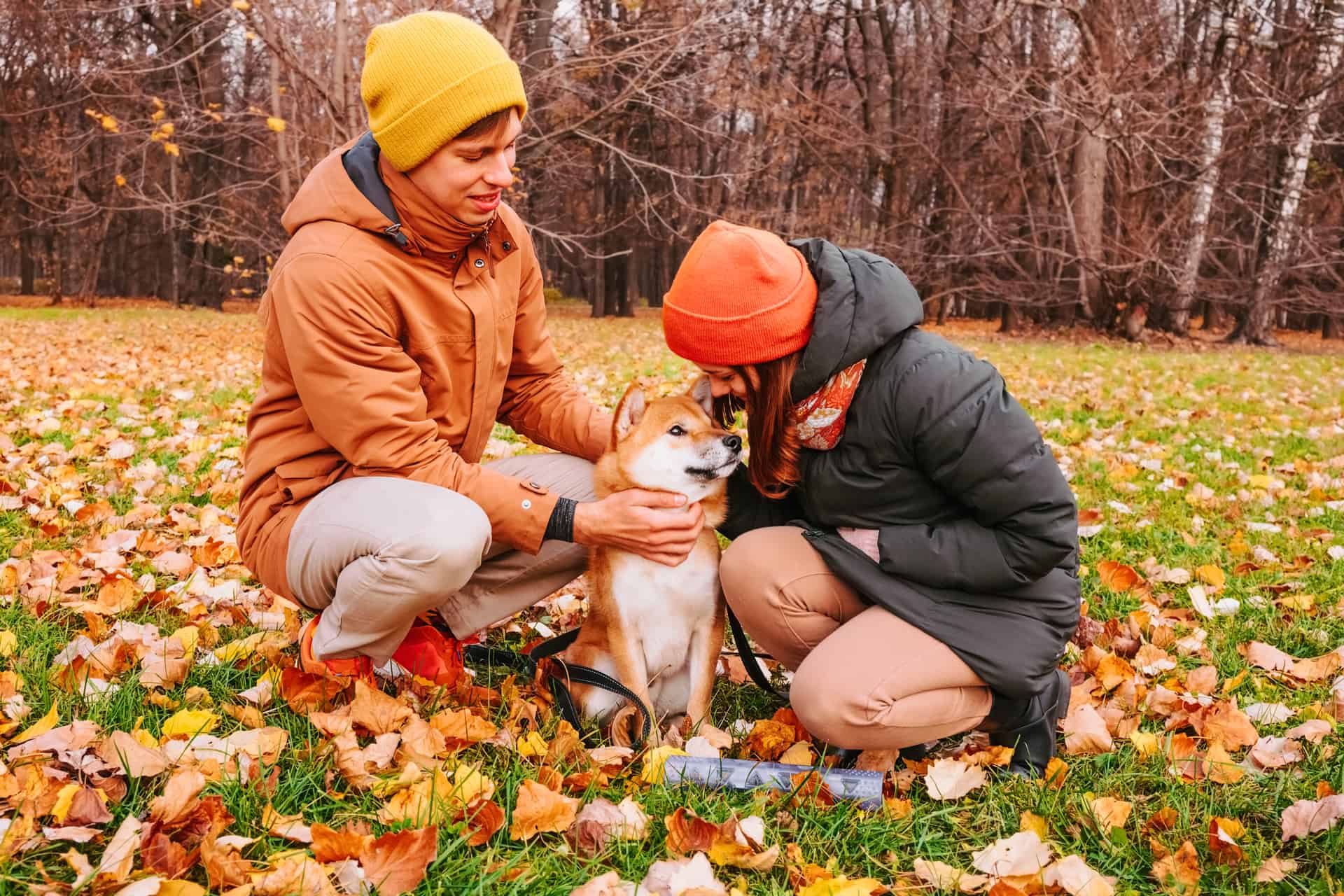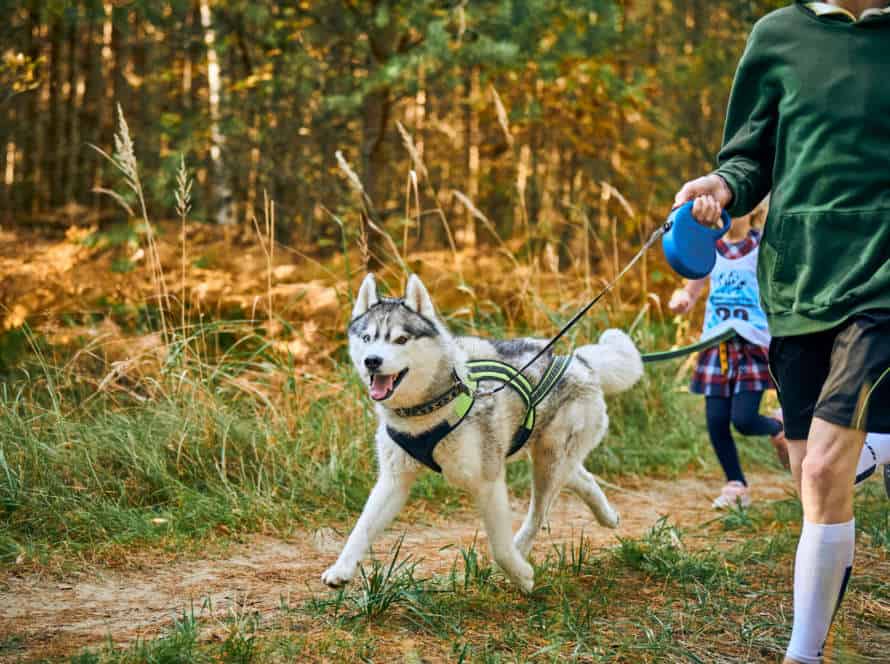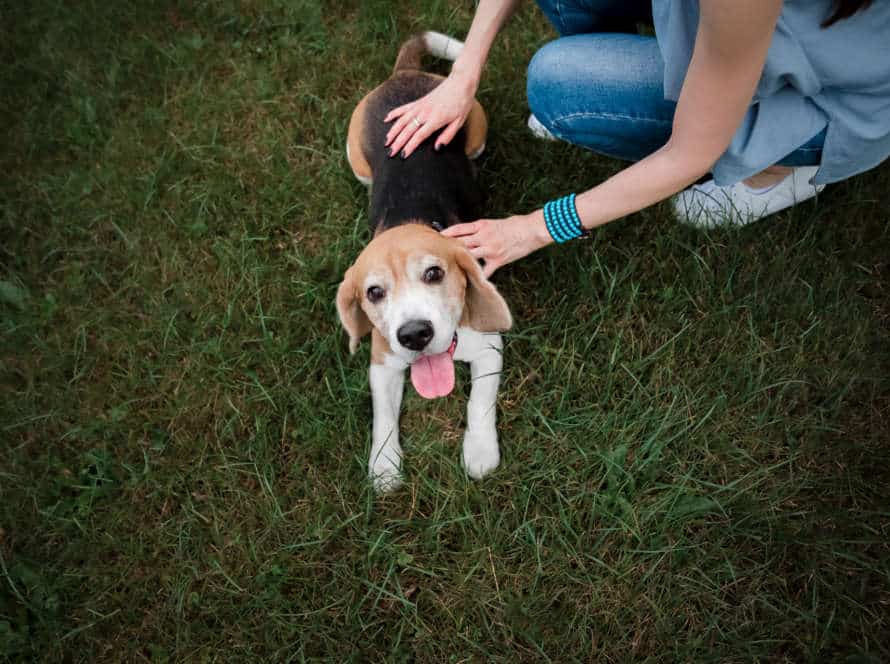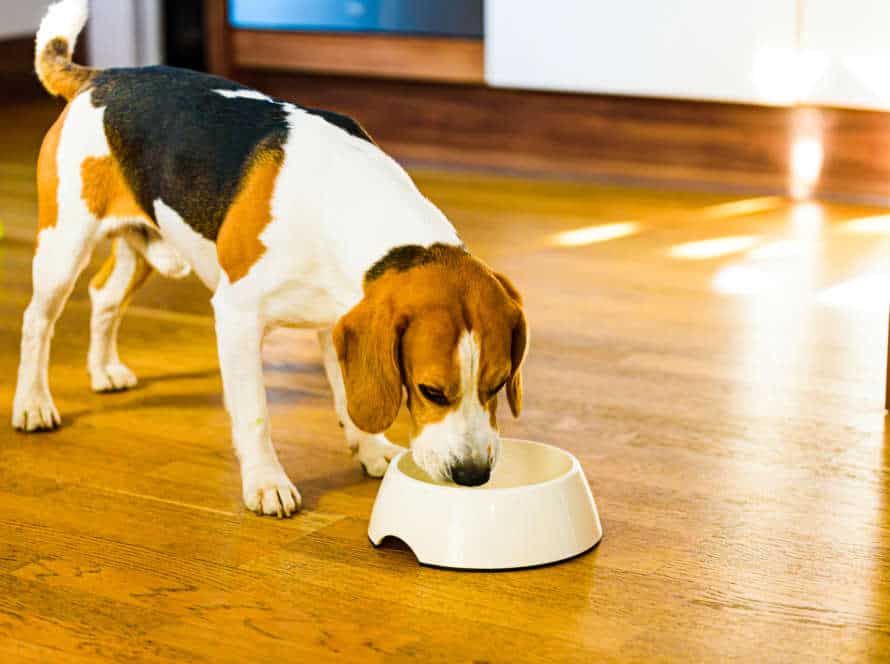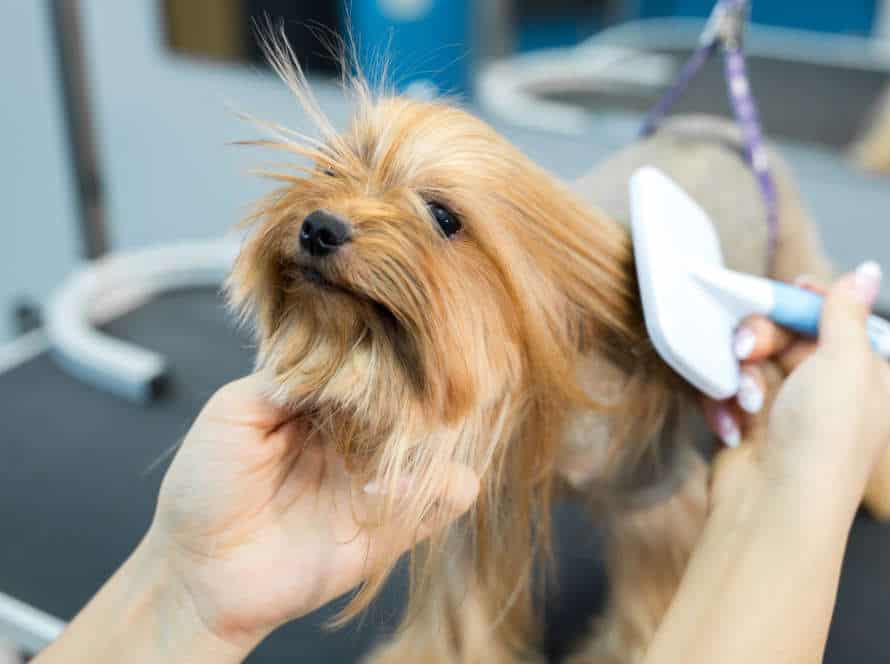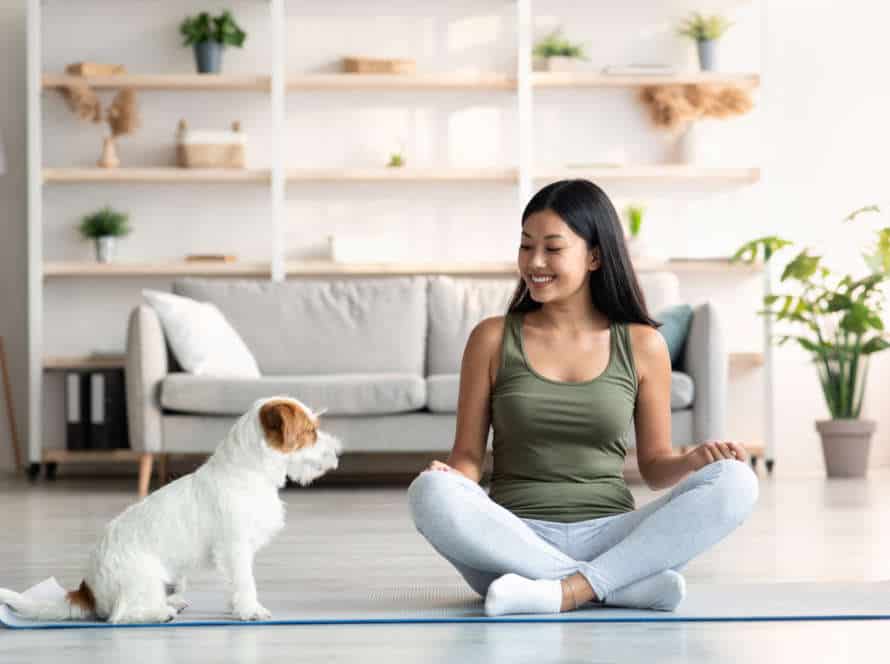Building Trust in Adult Dogs: It’s Never Too Late
Trust between you and your adult pup is important. It’s never too late to start! Positive reinforcement training is a great way to build trust. Here are some tips:
- Give treats when they do something you like.
- Play, go for walks, and groom your pup together.
- Be patient and stick to the same routine.
- Make sure their environment is consistent and predictable.
Building trust takes time and patience. But it’s key to a happy relationship with your four-legged friend.
Understand Your Dog’s Behavior and Body Language
Building trust with adult dogs is a process, but it’s never too late to begin. To create a strong, trusting bond, it’s essential to understand and read your dog’s body language and behavior. Doing this will give you a better understanding of how your pup is feeling and alert you to any issues.
Let’s explore the various aspects of your dog’s behavior which can help build trust.
Understanding Baseline Behaviors
It is key to know baseline behaviors for creating trust in adult dogs. This way, you can recognize what is usual and what is not. Doing so will make communication easier.
Baseline behaviors are the behaviors your dog performs regularly when relaxed and not excited. Examples are lying, sitting, standing, and eating.
Watching these behaviors over time will help you comprehend your dog’s personality and body language. Therefore, it will be easier to spot when they are anxious, scared, or stressed. If you observe any changes in their baseline behaviors, like panting a lot, pacing, or avoiding, it could be a sign something is wrong and you should look into it.
By understanding your dog’s baseline behaviors, you can create a secure and comfortable atmosphere for them. Thus, you will build trust and strengthen your bond.
Learning about Canine Communication Signals
Dogs converse with us all the time, through their body language and behavior. Knowing their signs helps build trust with them, regardless of age. Be aware of their body language to see if they are anxious, happy, scared or stressed.
A few common canine communication signals to know:
- Tail Wagging: This means different things. High-held tail means confidence and joy. Low-held tail could mean nervousness or submission.
- Eye Contact: This can mean positive or negative emotions. Squinted eyes and a soft gaze is a sign of love. Hard stares and dilated pupils can mean aggression or fear.
- Body Posture: Indicates their mood. Relaxed, loose posture with a wagging tail is happy. Tense, rigid posture and tucked tail could mean fear, anxiety or aggression.
Pay attention. Respond appropriately. This creates a secure setting for your pup to thrive.
Pro Tip: Every dog is unique. Consider their personality and body language when interpreting their behavior.
Identifying Stress Signals
Dogs tell us things through body language. As a pet parent, it’s a must to understand their behavior. Here’s what to look out for as signs of stress:
- Excessive panting and drooling.
- Rapidly switching between hyperactive and still.
- Shaking and trembling.
- Showing whites of their eyes or big pupils.
- Licking or biting themselves.
- Hiding or avoiding eye contact.
Knowing these signals is key to keep your pup safe and sound. Spend time with them and reward good behavior to build trust and lasting friendship.
Building Trust through Basic Training
Trust is vital for any bond. Especially when it comes to adult dogs. Basic training is one way to achieve this trust. Through teaching them simple commands, you can create the foundation for even more complex commands. Let’s explore how basic training can help us build trust with our adult dogs.
Consistency and Positive Reinforcement
Consistency and positive reinforcement are two key points for building trust with your adult pup.
Create clear rules and boundaries, and always enforce them. This way, your dog will know what’s allowed and what isn’t.
Reward good behavior with treats, love, and praise. This develops a connection between good behavior and good rewards, which encourages your pup to repeat the action.
Use consistency and positive reinforcement when training your adult pup. This will build trust, better behaviour, and strengthen your bond.
Plus, it’s never too late to start! Adult dogs can benefit from basic training and positive reinforcement.
Structured Routine and Boundaries
Routine and boundaries are key for building trust and stronger connections between adult dogs and owners.
Making a routine of feeding, exercising, playing and training will help adult canines what to expect and feel secure.
Clear boundaries and rules will help dogs understand what is expected from them.
Basic training, like leash walking, recall and commands like “sit” and “stay” will help with obedience, behavior and create a positive relationship.
Building trust takes time, patience, consistency and positive reinforcement.
It’s never too late to start or reinforce basic training with an adult dog.
Pro Tip: Short and frequent training sessions and ending on a positive note, like with a treat or playtime, are the best way to go.
Ending Training Sessions on a Positive Note
Finishing training with a good note is very important to have a strong bond and trust with your pup. Here are some tips:
- End on a good note. Praise your pup after they do something right. This will boost their confidence and behavior.
- Keep it brief. Too long of sessions can make your dog lose interest. Keep it to a manageable length.
- Cool down. Let them relax after the session.
By ending the session positively, you can create a trustful and enjoyable experience with your dog.
Addressing Specific Trust Concerns
Building trust with adult dogs? Not easy. But don’t worry, it’s never too late to get your dog feeling secure.
First, identify the trust issues your pup is having. Is your pup scared, naughty, or lacking socialization? These all require different approaches. Let’s look at some common trust issues in adult dogs, and how to address them.
Fear of New People and Situations
Adult dogs can feel anxious around new people and situations. That can lead to trust issues and maybe even aggression. It’s important to help adult dogs trust, no matter their age or character. Here are methods to do that:
- Go slow: Give time for adjustment. Let them sniff and explore but always watch.
- Use rewards: Treats and compliments will tell them it’s okay.
- Be consistent: Stick to routines and commands to let them feel secure.
- Get help: When things are too tough, seek a professional.
Building trust takes effort and patience. But, with the right care, it’s never too late for your dog to feel safe.
Resource Guarding and Aggression
Resource guarding and aggression are common issues for adult dogs. To manage them, address the root cause and build trust. It’s never too late to do this and strengthen your bond with your pup. Here are some tips to help:
- Be consistent in your actions and commands.
- Use reward-based techniques such as treats, praise and playtime.
- Understand your dog’s body language and behaviour.
- Don’t use punishment-based training.
- Provide socialization opportunities with vaccinated dogs. This will create a broader sense of trust.
Separation Anxiety and Desensitization Techniques
Separation anxiety is a common problem in adult dogs. It can bring stress to the dog and its owner. Desensitization techniques can help. Here are a few steps you can take:
- Start by leaving your dog alone, but just for a short while. Increase the time gradually.
- Give your dog a treat or toy when you go and come back. This way they’ll associate your departure with something good.
- Do desensitization techniques. For example, jangle your keys or put on your shoes without leaving the house.
- As you increase the time you spend away, give your dog access to toys and items that are safe and calming for them.
- Be patient and show empathy. This way, trust and a better bond can be built over time.
Building Trust Through Lifestyle Changes
A human-dog bond requires trust. As a pet owner, you must comprehend your pup’s necessities. Establishing trust with an adult dog is feasible, but needs patience and devotion from both. Lifestyle changes are the key to bettering the relationship with your pet. These won’t appear at once, but are a significant step in developing trust between you and your dog.
Let’s explore the essential shifts you can develop to gain trust from an adult dog.
Socialization with People and Other Dogs
Socializing a dog is important. Even adult dogs can learn to trust humans and other dogs. Here’s how:
- Lifestyle changes, like exercise and going to places with other dogs, are necessary.
- Introduce the dog to people and other dogs gradually. Start with short meetings.
- Watch for signs of fear, stress or anxiety. Remove the dog if needed.
- Positive reinforcement and reward-based training help build trust.
- With patience, consistency and a willingness to learn, socializing an adult dog is possible. This will cultivate an enduring bond between the dog and you!
Exercise and Mental Stimulation
Exercise and mental stimulation are key for making trust with adult dogs. It’s never too late to start changing your lifestyle for the better.
Daily walks, runs, or playtime can help your pup release energy and reduce behaviour that could harm your bond. Doing basic training exercises and puzzles can get your dog’s brain working and build their confidence.
Using positive reinforcement techniques can increase trust between you and your pup.
Making a few lifestyle changes, like daily exercise, mental stimulation, and positive reinforcement training, can lead to big improvements in your dog’s behaviour and health.
Remember, the relationship with your adult dog can always improve, and it’s never too late to start making trust through healthy lifestyle changes.
Nourishing Your Dog with a Balanced Diet
Feeding your pup a balanced diet with essential nutrients is vital for their well-being and long life. Here are some tips:
- Choose a quality dog food that has the right mix of protein, fat, and carbs.
- No giving table scraps or human food. These can have too many calories and be low in nutrition.
- Include fruits and veggies like spinach, carrots, and blueberries to supplement vitamins and minerals.
- Think about adding supplements like omega-3 fatty acids and probiotics to support your pup’s immune system, skin, and fur.
- Talk to your vet to work out the best diet and supplements for your pup’s breed, age, size, and health status.
Trust Building: It’s Not Too Late! Training and consistency are key to building trust with adult dogs, especially those who may have had tough beginnings. Positive lifestyle changes, such as regular exercise, routine, and positive reinforcement training, can help you build a bond of trust and love with your furry pal, no matter their age or previous life. Pro tip- Gradually transition your pup’s diet over several days to avoid any digestive issues.
Patience and Understanding Throughout the Process
Forming trust with an adult dog is not immediate. It takes patience and understanding of the dog’s past and temperament. Patience is essential. Don’t be too hasty! The aim is to create a positive and caring atmosphere, while slowly and steadily building trust with the dog.
Accepting That It Takes Time
Gaining trust with adult doggos takes patience and understanding. It could take longer than expected, but the rewards of a strong bond with your pup are worthwhile. Here are some tips:
- Devote quality time daily to bond with your doggo through activities, training or grooming.
- Reward good behaviour with treats, compliments, and love. This will help your pup link good behaviour with good results.
- Let your doggo approach you on their own terms and respect when they need some time alone.
- Set up routines, rules and boundaries for your pet and stick to them.
Remember: building trust is a gradual process…be patient and make the journey with your furry buddy enjoyable.
Recognizing and Celebrating Small Progressions
Recognizing and celebrating small successes is key to build trust with adult dogs. Patience and understanding are essential during this process. Start by watching your dog’s behavior and rewarding them when they display good behavior. For instance, if your pup used to bark a lot at strangers, but now only barks once, give them a treat.
Encouraging your dog to learn new things and praising them when they do well will make them more confident.
Remember that building trust takes time and effort. It is important to be consistent and use positive reinforcement. With persistence, patience, and guidance, your pup will gradually learn new behaviors and keep progressing. All progress is worth celebrating and rewarding as it means you’re getting closer to a better relationship with your furry friend.
Knowing When to Seek Professional Help
As a pet-parent, it’s vital to recognize when it’s time to get professional help for your adult doggo’s behavior issues. Look out for signs of stress, anxiety, and aggression. Here are some warning signs:
- Aggression towards humans or other animals.
- Excessive barking, whining, or destructive behavior.
- Fearful or anxious behavior in social situations – hiding, trembling, or panting.
- Sudden changes in appetite or sleep patterns.
Getting assistance from a dog trainer or behaviorist can help you pinpoint the cause of your pup’s issues and come up with an effective training plan. Patience and understanding are the keys to building trust and a strong bond between you and your pup. It’s never too late to help them overcome their troubles and live a happy life.
Pro tip: To keep your doggo safe and content, make sure to provide regular vet visits, proper exercise, and socialization.
Frequently Asked Questions
1. Is it really possible to build trust with an adult dog?
Yes, it is absolutely possible to build trust with adult dogs. While puppies may be easier to train and establish a bond with, adult dogs are still capable of learning and forming strong, trusting relationships with their owners through patience, consistency, and positive reinforcement.
2. Can past trauma or abuse affect a dog’s ability to trust?
Yes, past trauma or abuse can certainly affect a dog’s ability to trust humans. However, with patience, understanding, and a gentle approach, even dogs with a history of abuse can learn to trust and form positive associations with their owners.
3. What are some effective ways to build trust with an adult dog?
Some effective ways to build trust with an adult dog include:
– Consistent training and positive reinforcement
– Spending quality time with your dog through walks, play, and cuddles
– Being patient and understanding of your dog’s needs and boundaries
– Building a routine and a sense of structure for your dog
– Providing your dog with a safe and comfortable environment
4. Can socialization help build trust with an adult dog?
Yes, socialization can be a great way to build trust and confidence in adult dogs. By exposing your dog to new people, places, and situations in a controlled and positive way, you can help them feel more comfortable and secure in the world around them.
5. What should I do if my adult dog has trust issues?
If your adult dog has trust issues, it’s important to approach them with patience and understanding. Work with a trainer or behaviorist to create a personalized plan for your dog, and focus on building a bond through positive interactions, consistency, and a gentle approach.
6. Does building trust with an adult dog take a long time?
Building trust with an adult dog can take time, especially if they have a history of trauma or abuse. It’s important to be patient and consistent in your approach, and to remember that every dog is different. With time, effort, and a lot of love, however, most dogs can learn to trust and form strong bonds with their owners.

